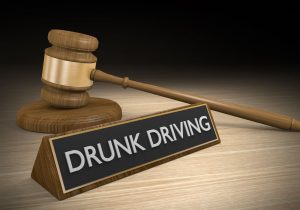New Jersey DWI Alcotest Testimonial vs. Non-Testimonial

Our law firm, based in Philadelphia, handles DUI (Driving Under the Influence) cases in Pennsylvania along with DWI (Driving While Impaired) cases in the State of New Jersey. While Pennsylvania and New Jersey share a border, each jurisdiction approaches the prosecution of drunk driving in a different way. While Pennsylvania utilizes a breathalyzer or a blood test to establish that a person’s blood alcohol level exceeded the legal limit (.08), New Jersey utilizes the Alcotest.
Drunk Driving In New Jersey Is A Traffic Offense
If someone is charged in New Jersey with drunk driving, it is important to understand that this is a traffic violation and not a crime under New Jersey’s crimes code. This means that, unlike in Pennsylvania, a defendant who is charged with a violation of NJSA 39:4-50(a) has no right to a trial by jury even if the person faces a mandatory 180 jail sentence as the result of a 3rd or subsequent DWI. New Jersey does not maintain any type of Accelerated Rehabilitative Disposition (ARD) program like Pennsylvania, and the State’s Pre-trial Intervention (PTI) program or conditional discharge doesn’t apply to these matters.
No Plea Bargaining With the Prosecutor
With regards to plea negotiations, in New Jersey, the prosecutor isn’t permitted to plea bargain but they can exercise discretion with regards to the State’s ability to establish its burden of proof beyond a reasonable doubt (evidentiary burden of proof.) The State must provide the defense with specific foundational documents under State v. Chun. In that landmark case 20 documents, grouped into 12 items, were specifically identified. While 20 documents were identified, the Court only requires that the State introduce “core foundation” documents into evidence.
Core Foundational Documents -DWI Prosecution
If the State does not provide the defense with these 20 documents, the defense is open to argue a discovery violation. The core foundational documents include the following:
- The most recent calibration report prior to the defendants test and the credentials of the coordinator who performed the calibration.
- The most recent new standard solution report prior to the defendants test.
- The Certificate of Analysis of the .10 simulator solution used in the defendants control test.
Testimonial vs. Non Testimonial Evidence
It’s important to understand that these core documents are not testimony in nature and therefore can be admitted without testimony of the officer who performed the new solution report and the coordinator who performed the calibration. If the defense is alleging some issue with these documents, the defense can subpoena these individuals and a failure to respond to a subpoena could be an issue at trial.
While these documents are non-testimonial, the State will still need to introduce a witness to testify as to the 20 minute observation period along with testimony attaching a new disposable mouthpiece to the actual device and the removal of cell phones and portable electronic devices from the testing area. If you are charged with a DWI in New Jersey it’s important to understand the difference between testimonial and non-testimonial evidence along with the other issues affecting the admissibility of the Alcotest at trial.
Prior to trial, your attorney must also evaluate possible pre-trial motions to suppress for lack of probable cause to stop and/or arrest the individual for suspicion of DWI. All of these are important issues which can aid in either an acquittal at trial or cause the Prosecution to consider a reduction in the severity of your matter.



